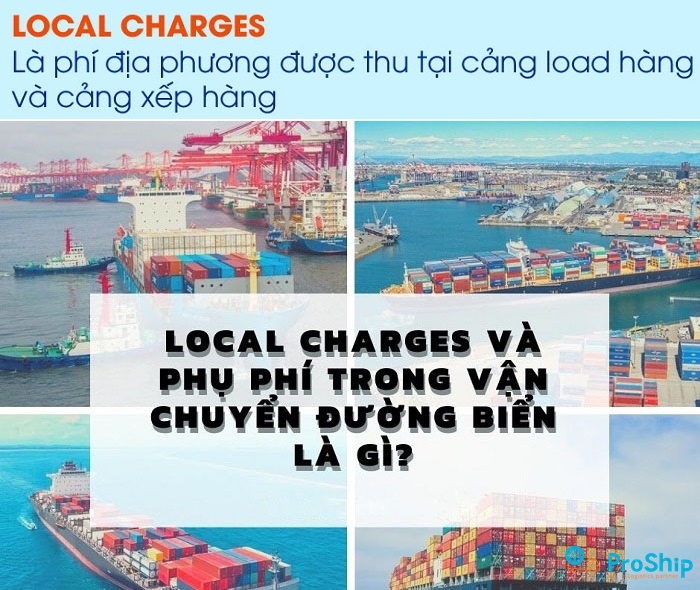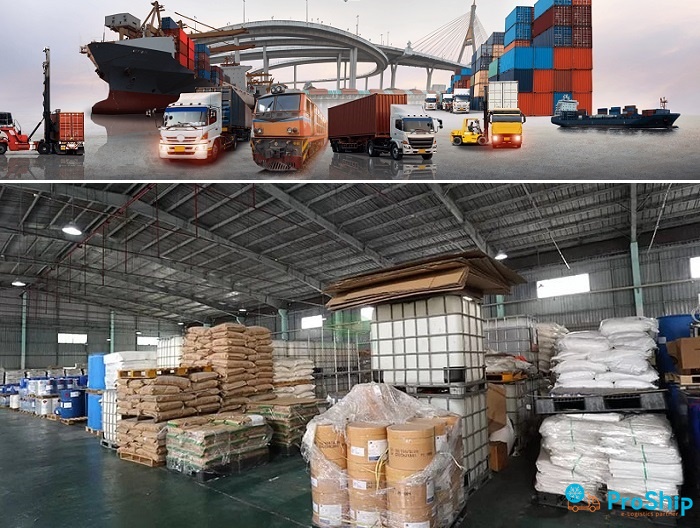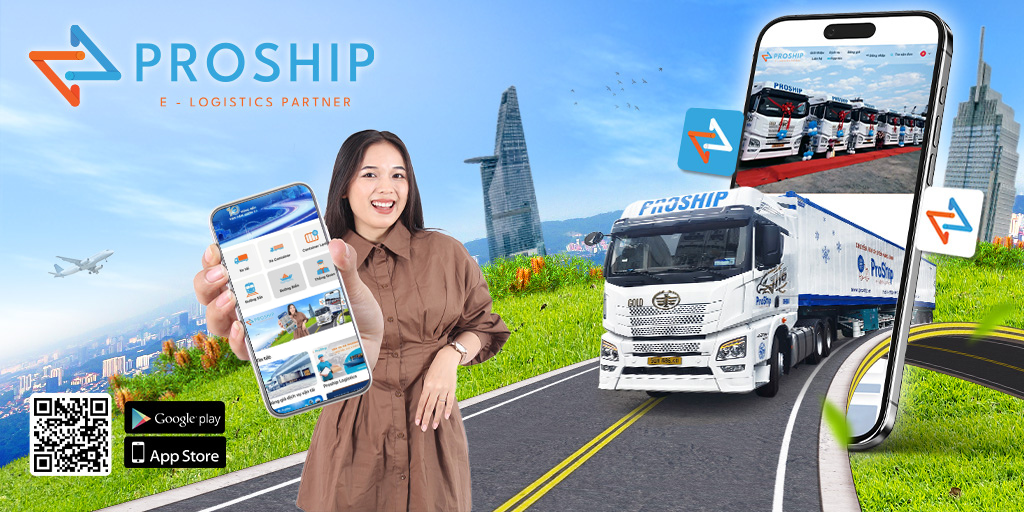x Bạn hoạt động trong Ngành Logistics, cần tìm hiểu phí local charges là gì? Phụ phí?
x Bạn muốn biết các quy định liên quan của Local Charges và cách khai báo phí?
x Bạn có số lượng hàng không nhiều, muốn ghép chung với nhiều khách để XNK đường biển?
Proship.vn là một trong những Đơn vị vận chuyển hàng lẻ Chính Ngạch đường biển từ Việt Nam sang Nhật, Đức, Úc, Mỹ,…theo phương thức ghép hàng chung với nhiều khách khác nhau, mỗi khách sẽ có một tờ khai riêng. Hơn nữa, phía chúng tôi cũng hiểu rõ phí local charge là gì cũng như các vấn đề khác liên quan tới loại phí, phụ phí này nên cũng giải đáp nhanh trong khuôn khổ bài chia sẻ sau đây cho Quý Doanh nghiệp.
📦 Hotline Liên Hệ Vận Chuyển
🧭 Miền Trung
Local Charges là gì?
Trong quy trình vận tải hàng hóa, chi phí vận tải được tính từ thời điểm hàng hóa từ cảng đi đến cảng đích sẽ bao gồm cước biển (ocean freight) và các loại phụ phí (surcharge). Bên cạnh đó, khi hàng hóa được đưa lên tàu hay dỡ hàng xuống bãi container, hãng tàu sẽ thu thêm phí để đảm bảo hoạt động, phí đó được gọi là Local Charges. Vậy, Local charges là gì?
Local Charges thực chất là phí địa phương được thu tại cảng load hàng và cảng xếp hàng. Theo đó, bên cạnh cước biển (Ocean Fee) thì các hãng tàu/Forwarder (bên giao nhận) sẽ thường thu thêm một khoản phí và đó chính là phí Local Charges. So với những loại phí khác thì phí địa phương được thu theo hãng tàu và cảng. Do đó, một lô hàng khi vận chuyển thì cả shipper và Consignee (người nhận) đều phải đóng phí theo quy định.

Các loại phí Local Charge khá thông dụng hiện nay bao gồm:
- Phí Terminal Handling Charge: Là phí xếp dỡ hàng tại cảng và được tính theo mỗi container hàng hóa. Phí này có mục đích là bù đắp các khoản phí như xếp dỡ hàng, tập kết cont tại bãi…Dựa vào đó hãng tàu sẽ không bị chịu thêm phụ phí nào mà sẽ thu phí lại từ chủ hàng. Thường loại phí này được gọi tắt là THC;
- Phí Handling Fee: Là loại phí do Forwarder đưa ra để thu của Consignee và Shipper. Phí handling được coi như công cho quá trình forwarder giao dịch với đại lý của họ tại các nước khác để để triển khai một số công việc như phát hành B/L, D/O, khai báo hải quan và làm một số chứng từ khác;
- Phí Delivery Order Fee: Là phí lệnh giao hàng, gọi tắt là D/O. Khi có lô hàng nhập khẩu và có Arrival Notice thì consignee phải đến hãng tàu để lấy lệnh giao hàng D/O. Sau đó mang D/O đã lấy đến cảng để xuất trình cho kho và làm phiếu lấy hàng. Hãng tàu khi làm lệnh giao hàng thì sẽ thi phí cho D/O đó;
- Phí CFS- Container Freight Station Fee: Là một trong những loại phí local charge thường gặp nhất. Phí này sẽ do các Công ty vận chuyển thu khi phải dỡ hàng từ container về kho hoặc từ kho ra container;
- Phí AMS: Là phí bắt buộc phải đóng do hải quan một số nước như Mỹ, Canada.. yêu cầu. Khi nhập khẩu vào các nước này bạn phải khai báo hàng hóa một cách chi tiết trước khi xếp dỡ lên tàu. Mức phí AMS sẽ giao động khoảng 30 USD/bill;
- Phí Bunker Adjustment Factor: Gọi tắt là BAF, là phụ phí bù cho biến động giá nhiên liệu theo từng thời kỳ. Phí BAF sẽ có mức đóng khác nhau tùy thuộc vào hãng tàu thu phí của chủ hàng và theo từng tuyến Châu Âu và tuyến Châu Á;
- Phí B/L; Phí AWB, Phí chứng từ: Là các phí tương tự như phí D/O. Tức là khi có lô hàng xuất khẩu, các hãng tàu sẽ phát hành hóa đơn vận tải biển, hoặc hóa đơn vận tải hàng không. Phí gửi hàng mà người gửi hoặc nhận sẽ do Công ty vận chuyển làm hộ;
- Phí Container Imbalance Charge CIC: Là phí mất cân đối vỏ container, phí này còn có cách gọi khác là phụ phí trội hàng nhập. Phí này sẽ các hãng tàu thu để bù vào chi phí cho việc vận chuyển container từ nơi thừa cont đến nơi thiếu cont nhằm đảm bảo các địa điểm luôn có đủ lượng cont để đóng hàng;
- Phí chỉnh sửa Bill of Lading: Phí này chỉ áp dụng cho hàng hóa xuất khẩu ra nước ngoài. Có thể vì một vài nguyên nhân khi hàng về bạn cần phải chỉnh sửa lại các thông tin trên B/L. Lúc này bạn cần yêu cầu các hãng tàu chỉnh sửa hộ và các hãng tàu này sẽ thu phí cho việc chỉnh sửa đó. Mức phí có thể giao động từ 50-100 USD;
- Phí General Rate Increase – GRI: Là phí chuyên áp dụng đối với hàng đông lạnh. Loại hàng này thường được đóng trong các cont lạnh và cont lạnh thì cần phải được cắm điện liên tục để giữ lạnh cho hàng hóa ở trong. Tiền phí này coi như tiền điện duy trì lạnh cho các container này;
- Phí Peak Season Surcharge: Phí này gọi tắt là PSS và được các hãng tàu thu trong các mùa cao điểm về vận chuyển hàng hóa. Phí này chỉ mang tính thời điểm và xuất hiện khi đến đợt nhu cầu vận chuyển hàng hóa tăng cao.
Một số loại phí Local Charge khác:
- Phí niêm phong chì Seal;
- Phí soi chiếu an ninh;
- Phụ phí giảm thải lưu huỳnh;
- Phí khai báo an ninh, hải quản vào một số quốc gia;
- Phí truyền dữ liệu.
📦 Hotline Liên Hệ Vận Chuyển
🧭 Miền Trung
Một số quy định liên quan và cách khai báo phí Local Charges
Trong vận chuyển Quốc tế, lô hàng của bạn sẽ phải chịu rất nhiều các loại thuế khác nhau, trong đó thường gặp nhất là phí Local charge. Nếu bạn làm nghề xuất nhập khẩu hoặc làm ở Công ty Logistics thì nên nhớ các loại phí local charge này. Tìm hiểu thêm để biết lý do phát sinh local charges là gì, cách khai báo local charge như thế nào sau đây:
Tại sao lại phát sinh phí local charges? Quy định ra sao?
Tùy vào loại hàng hóa và hoạt động được thực hiện mà người ta định ra các loại phí Local Charges. Không có một mức phí cố định cho tất cả các giao dịch vận chuyển, xếp dỡ hàng hóa trên bến cảng. Bởi mỗi hoạt động lại có những đặc điểm và yêu cầu khác nhau và phát sinh những mức phí khác nhau để phù hợp với công sức và phí thuế. Phí dành cho việc xếp hàng hóa lên tàu để xuất khẩu sẽ được phân biệt với mức phí chi trả để xếp hàng hóa về container để nhập khẩu, tương tự như vậy với tất cả các hoạt động khác liên quan đến việc giao dịch hàng hóa giữa hãng tàu/Forwarder với Shipper/Consignee.
Đây chính là lý do đơn giản khiến các phí Local Charges phát sinh. Các loại phí này có những điểm giống nhau dễ bị nhầm lẫn cho nên khi tìm hiểu về local Charges thì cần nắm rõ bản chất của từng loại phí. Tránh cho quá trình làm việc giữa bạn và các đơn vị liên quan gặp rắc rối do sự nhầm lẫn gây ra.
Cách khai báo phí local charges nhanh chuẩn nhất
Liên quan đến xuất nhập khẩu, dù các loại phí trong local charges được chi trả cho các đơn vị vận chuyển thế nhưng nó vẫn cần phải được khai báo chi tiết với cơ quan thuế để tính thuế. Việc khai báo này sẽ được tiến hành trên các phần mềm chuyên dụng như ECUS5 hay VNCCS. Vậy bạn đã biết cách để thực hiện khai báo thuế trên các phần mềm này hay chưa?

* Cách khai báo phí Local charges thứ nhất:
- Trên tab Thông tin chung 2, trong mục Tờ khai trị giá hãy nhập vào đó mã để phân loại các trị giá.
- Trong phần nội dung Các khoản điều chỉnh thuộc mục Tờ khai trị giá, bạn nhập vào các giá trị sau đây: mã phân loại, mã tên, trị giá những khoản cần điều chỉnh, mã đồng tiền dựa vào hóa đơn thanh toán phí local charges.
- Mục Chi tiết khai trị giá người kê khai local charges sẽ có trách nhiệm điền vào một cách rõ ràng đối với các khoản phí. Đồng thời kê khai kèm theo cả giá trị cụ thể.
* Cách khai báo phí Local charges thứ hai:
Trên tab Danh sách hàng hóa, bạn chọn mục Phân bố chi phí, những khoản này đều đã được quy định tại pháp luật Việt Nam cho nên bạn sẽ được hướng dẫn cụ thể theo từng điều luật riêng.
Nhìn chung, mỗi một đơn hàng sẽ có thể bị rơi vào tình trạng gánh rất nhiều thuế phí local charges nếu như các chủ hàng là người mới vào nghề, không có kinh nghiệm. Vậy thì để tránh phải bỏ ra một khoản tiền lớn để đóng cho chi phí vận chuyển, cách tốt nhất là các chủ hàng cần phải tìm được cho mình một Đơn vị vận chuyển uy tín.
>>Xem thêm: Cut-off time/closing time là gì?
Tại sao nên chọn Dịch vụ vận chuyển hàng lẻ LCL đi các nước Chính Ngạch giá rẻ đường biển tại Proship?
Khách hàng nên tin chọn Dịch vụ xuất nhập khẩu hàng lẻ Chính Ngạch đường biển tuyến Việt Nam – Mỹ, Đức, Hà Lan, Úc, Nhật,…tại CÔNG TY CỔ PHẦN PROSHIP, chính bởi:
- Thu xếp tất cả mặt hàng, tần suất vận tải hàng thường xuyên, năng suất vận tải lớn, không hạn chế số lượng;
- Kho CFS thu gom hàng lẻ đặt tại các vị trí chiến lược toàn quốc tạo ra giải pháp LCL hiệu quả, hoàn chỉnh;
- Proship là đơn vị có mối liên kết chặt chẽ với các hãng, đơn vị tàu biển lớn, có thương hiệu trên thị trường;
- Giá cước vận chuyển hàng lẻ đi các nước bằng container (2 chiều) cực tốt, lịch trình ổn định, ưu tiên giao và khai thác hàng nhanh từ hãng tàu, cảng, kho CFS,…;
- Có nhiều chuyến gom hàng xuất khẩu và nhập khẩu trực tiếp hàng tuần;
- Gom hàng tại nhiều nơi gửi sang Mỹ, Úc, Đức, Nhật,…và lưu kho hàng chờ giao nhận tại đích đến;
- Dịch vụ gom hàng tại các trạm chuyển tiếp quốc tế, phủ sóng dịch vụ tới các tuyến vận chuyển quá cảnh;
- Đội ngũ nhân viên được đào tạo nghiệp vụ chuyên sâu, tận tâm và giàu kinh nghiệm;
- Trang bị xe kéo Container, Container đa tải trọng, máy móc thiết bị nâng dỡ hàng hiện đại, chắc chắn;
- Vận chuyển trực tiếp tới/từ các cảng Bắc Mỹ, Nam Mỹ, Châu Âu và Châu Á;
- Quý khách có thể theo dõi đơn hàng trực tiếp qua Websites hoặc qua đội ngũ nhân viên tư vấn;
- Bảo hiểm hàng hóa khi XNK hàng lẻ Chính Ngạch đường biển từ Cảng Việt Nam – Cảng ở Mỹ, Nhật, Úc, Đức,…;
- Hợp đồng quy định trách nhiệm của Nhà vận chuyển hàng LCL bằng container đường biển đi các nước;
- Đại lý, đối tác rộng khắp các nước nên quý khách cứ an tâm vì hàng được gửi sang nước ngoài nhanh nhất;
- Cam kết bảo mật thông tin khách hàng cũng như thông tin hàng hóa khách cung cấp;
- Chính sách bồi thường hàng hóa theo giá thị trường nếu phát hiện lỗi do Nhà vận chuyển;
- Nhiều gói dịch vụ cho khách lựa chọn như: Vận chuyển CY-CY, Vận chuyển Door to Door, Vận chuyển theo các điều khoản Incoterms trong hợp đồng.
Vì có nhiều kinh nghiệm vận tải hàng hóa bằng container đường biển nên Proship hiểu rõ phí local charges là gì cũng như các phụ phí local charge là gì,…nên trước khi chính thức ký kết Hợp đồng vận chuyển – xuất nhập khẩu hàng lẻ theo con đường Chính Ngạch sẽ tư vấn, thương lượng kỹ càng để chủ hàng có thể dự trù trước về ngân sách gửi hàng.

Đối tượng khách hàng Proship đã và đang hướng tới
- Các Tổng Công ty, các Công ty trong và ngoài nước có nhu cầu vận chuyển hàng hóa;
- Các Nhà máy, các công trình, các Tổng đại lý và Dịch vụ hàng hóa nội địa, xuất nhập khẩu Quốc tế;
- Các Doanh nghiệp vừa và nhỏ có nhu cầu vận chuyển đường biển tuyến Quốc tế và xuất nhập khẩu cho thời gian nhanh nhất và tiết kiệm các chi phí nhỏ nhất.
Các phương thức vận chuyển – giao nhận hàng lẻ LCL
- Vận chuyển hàng lẻ từ Cảng tới Cảng;
- Vận chuyển hàng Consol từ Cảng tới Kho;
- Vận chuyển hàng LCL từ Kho tới Kho;
- Vận chuyển hàng hóa tận nơi theo yêu cầu;
- Các dịch vụ đi kèm khác tùy nhu cầu cụ thể của khách hàng.
Thông tin cung cấp để nhận báo giá vận chuyển hàng lẻ Chính Ngạch Việt – Trung, Nhật, Đức, Úc, Mỹ,…
- Địa chỉ lấy hàng/Cảng xuất hàng;
- Địa chỉ giao hàng/Cảng nhập hàng;
- Tên hàng, chuẩn loại, kích thước, trọng lượng;
- Số lượng hàng hóa;
- Nếu là đi hàng lạnh, hàng thực phẩm cần cung cấp nhiệt độ lạnh yêu cầu;
- Nếu là hàng nguy hiểm cần cung cấp MSDS, có số UN;
- Ngày dự kiến hàng hóa hoàn thành;
- Các yêu cầu khác nếu có…
* Ngoài cước biển được báo theo tuyến cụ thể, các chi phí khai thác hàng (Local charges) giữ cố định theo bảng giá:
- Phụ phí lưu huỳnh (LSS hoặc WBS): USD 7/CBM. Là phụ phí mới, theo quy định trong hiệp ước Imo2020 về vận tải biển;
- Phí cầu cảng (Terminal Handling charges): USD 8/CBM;
- Phí vận đơn (Bill fee/Docs fee): USD 40/bộ;
- Phí telex release: USD 30/bộ;
- Phí EBS/AMS/AFR: USD 35/chuyến;
- Phí kho CFS: USD 8/CBM.
Proship đã tổng hợp nhanh kiến thức cần biết về phí local charges là gì, quy định của local charges là gì, các phụ phí local charge là gì và cách khai báo local charge trong vận tải hàng hóa đường biển hiện nay. Quý khách hàng là Cá nhân/Doanh nghiệp đang có kế hoạch gửi hàng theo phương thức đi nguyên chuyến hoặc gửi hàng lẻ LCL nên lưu lại thông tin để phần nào hỗ trợ cho công việc giao thương hàng hóa/sản phẩm với đối tác/bạn hàng. Và khi có nhu cầu sử dụng Dịch vụ vận chuyển hàng LCL đi các nước Chính Ngạch giá rẻ, vui lòng liên hệ trực tiếp với chúng tôi theo 0909 344 247.
📦 Hotline Liên Hệ Vận Chuyển
🧭 Miền Trung

